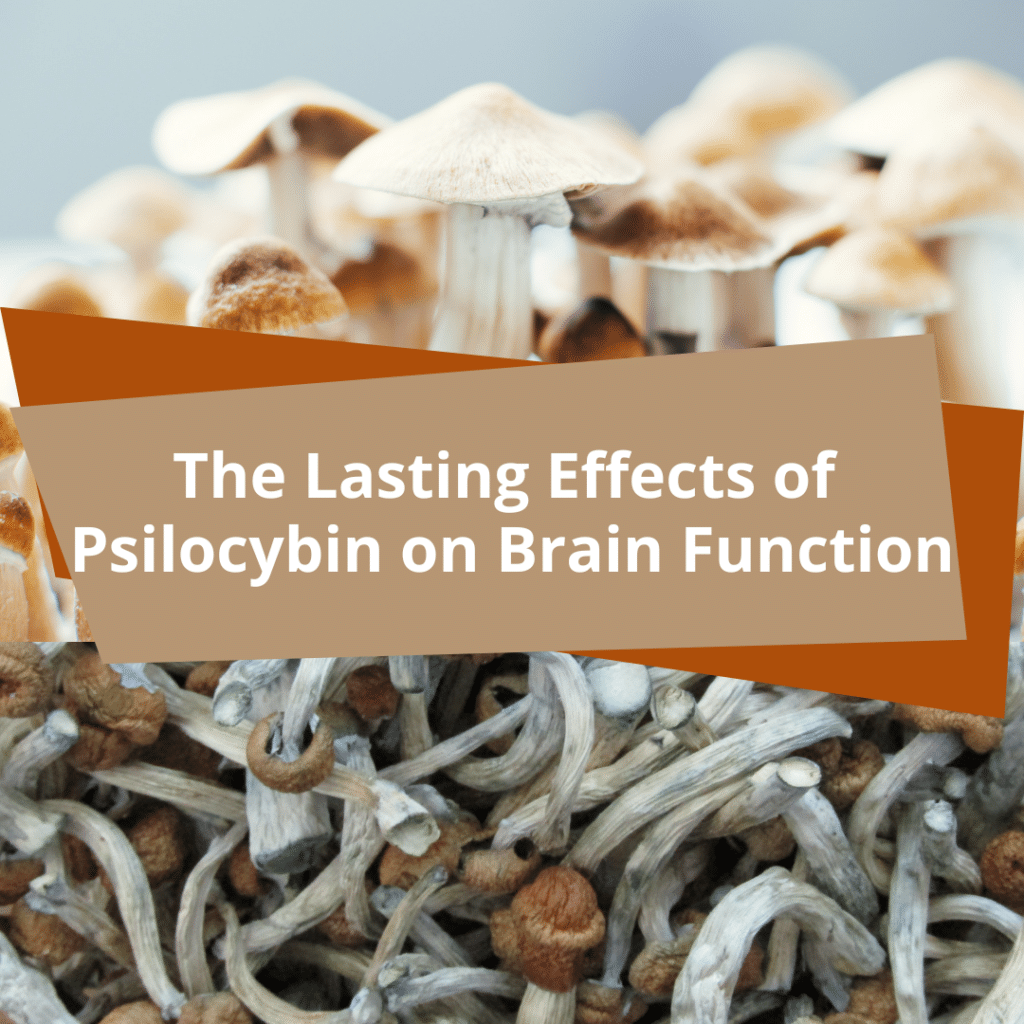Recent research has uncovered exciting findings about the lasting effects of psilocybin, a powerful psychedelic compound known for its ability to alter brain function and behaviour. A study conducted by researchers using advanced neuroimaging techniques explored whether psilocybin causes enduring changes to the brain’s structure and functioning, particularly in terms of cognitive flexibility, psychological insight, and overall well-being.
Study Overview
This placebo-controlled study involved 28 healthy, psychedelic-naive participants who were administered a higher dose, 25 mg of psilocybin, roughly equal to 2.5 grams of Cubensis Magic Mushrooms. The study tracked brain changes at multiple time points, from one hour to one-month post-dose, using electroencephalography (EEG), functional magnetic resonance imaging (fMRI), and diffusion tensor imaging (DTI). The findings revealed notable cognitive, functional, and anatomical changes linked to improved psychological health and flexibility.
Key Findings
Acute Brain Effects
One of the key findings was the rapid onset of brain activity changes following the 25mg psilocybin dose. EEG results revealed a significant increase in the brain’s informational entropy (Lempel-Ziv complexity, or LZc) at one and two hours post-dosing, reflecting heightened brain activity and disorganized neural networks. Decreased alpha waves, a well-documented marker of psychedelic experiences, accompanied this increase in brain entropy. Interestingly, these changes were absent in participants who received a placebo (1 mg psilocybin).
Long-Term Brain Changes
One of the study’s most compelling results was observing lasting anatomical changes in the brain. DTI scans revealed decreases in axial diffusivity (AD) in two key white matter tracts—specifically, the prefrontal cortex-striatum (PFC-STR) and prefrontal cortex-thalamus (PFC-THA) pathways. These changes suggest potential neuroplasticity or the brain’s ability to reorganize and form new connections after a single dose of psilocybin. Notably, these anatomical changes were correlated with improved psychological well-being at one-month post-dose.
Brain Network Modularity and Psychological Well-being
The study also found that reduced brain network modularity (the brain’s ability to segregate information across different brain regions) was associated with improved mental well-being. This is in line with previous research showing that decreased network modularity can be linked to better outcomes in mental health, particularly after psilocybin therapy for conditions like depression. These results support the idea that psilocybin may foster more integrated brain function, which could underlie its therapeutic effects.
Emotional Processing and Psychological Insight
fMRI scans revealed that psilocybin significantly altered the brain’s response to emotional stimuli, particularly fearful faces. These findings suggest that psilocybin might help individuals process emotions differently, possibly contributing to its therapeutic effects. Furthermore, psychological insight—measured via self-report scales—was significantly increased at multiple time points after the high-dose psilocybin session. This insight was found to mediate the relationship between brain entropy and long-term improvements in well-being, further emphasizing the importance of subjective experience in the lasting effects of psychedelics.
Implications for Mental Health
The results of this study have important implications for understanding how psychedelics like psilocybin can induce lasting changes in both the brain and mental health. Not only did the study show that psilocybin leads to acute changes in brain activity, but it also demonstrated that these changes could predict long-term improvements in mental health, including increased psychological insight, better well-being, and enhanced cognitive flexibility.
Given the neuroplasticity observed in this study, psilocybin could potentially serve as a tool for fostering lasting changes in brain function, particularly in individuals with mental health conditions. These findings align with prior research suggesting that psychedelics may be a promising therapeutic avenue for conditions like depression, anxiety, and PTSD, offering new ways to help individuals achieve lasting psychological growth.
Conclusion
This study provides groundbreaking evidence that psilocybin has immediate effects on brain activity and induces long-term functional and structural changes correlated with improved mental health. The results support the growing body of evidence that psychedelics can foster neuroplasticity and mental well-being, opening the door to future clinical applications in psychotherapy and beyond.
As the therapeutic potential of psychedelics continues to be explored, studies like this one pave the way for deeper insights into how substances like psilocybin can contribute to mental health treatment, offering hope for those suffering from mental health conditions that have been resistant to traditional therapies.
This article is based on the study; Human brain changes after first psilocybin use. Published by bioRxiv on October 15th, 2024. https://www.biorxiv.org/content/10.1101/2024.10.11.617955v2.full
Authored by; T Lyons, M Spriggs, L Kerkelä, FE Rosas, L Roseman, PAM Mediano, C Timmermann, L Oestreich, BA Pagni, RJ Zeifman, A Hampshire, W Trender, HM Douglass, M Girn, K Godfrey, H Kettner, F Sharif, L Espasiano, A Gazzaley, MB Wall, D Erritzoe, DJ Nutt, RL Carhart-Harris
